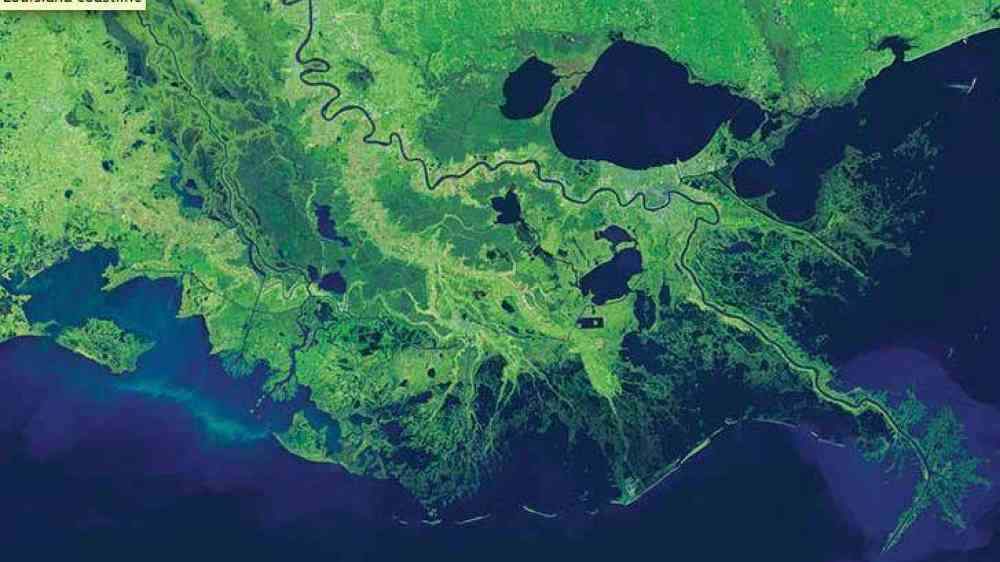Please help us improve PreventionWeb by taking this brief survey. Your input will allow us to better serve the needs of the DRR community.
US: Water, water everywhere - Saving Louisiana’s coast

NASA Earth Observatory image from 2014 shows the Mississippi River wending toward the Louisiana coastline. (Image from earthobservatory.nasa.gov)
It was Day Nine after Hurricane Katrina struck in 2005 when Sarah Mack’s bosses at the Sewerage and Water Board of New Orleans called her back to work. Mack had been working as an environmental scientist pre-Katrina. Her supervisors brought her back as emergency manager, she says, because she could communicate what is “a real and what is a perceived risk", reports Mary Ann Travis for Tulane. Mack wants more private enterprises to incorporate coastal restoration into their business models.
According to the report, in 2007 Louisiana created the Coastal Protection and Restoration Authority and developed a Coastal Master Plan, recognizing the threats to the way of life and the land of the state. Five years later, the plan was revised into “Louisiana’s Comprehensive Master Plan for a Sustainable Coast.” A new plan will be coming out in 2017.
The plan is based on “strong science and a good vision for coastal restoration of Louisiana,” says Michael Blum, associate professor of ecology and evolutionary biology, Eugenie Schwartz Professor of River and Coastal Studies and director of the Tulane Center for Bioenvironmental Research.
The plan addresses key issues of flood protection, natural processes, coastal habitats, cultural heritage and the working coast.
“I wouldn’t say it’s a blueprint but it’s a well-thought-out vision for 50 years of restoration,” says Blum.
Explore further
Please note: Content is displayed as last posted by a PreventionWeb community member or editor. The views expressed therein are not necessarily those of UNDRR, PreventionWeb, or its sponsors. See our terms of use
Is this page useful?
Yes No Report an issue on this pageThank you. If you have 2 minutes, we would benefit from additional feedback (link opens in a new window).